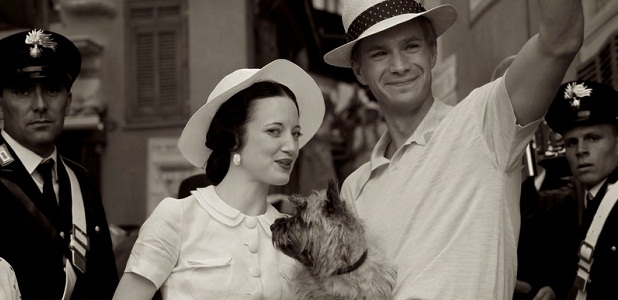I had a real marathon of a day on day 25, five films, all at screenings rather than on screeners. It was a LONG day, and sometimes (often, actually) a frustrating one.
A DANGEROUS METHOD (David Cronenberg)

I’ve been watching, and loving, David Cronenberg’s films for fifteen years, and the Canadian master of body horror has become one of my favourite filmmakers. I had been anticipating this film because it finds Cronenberg working with three actors I like and respect (Michael Fassbender, Keira Knightley and his late period muse Viggo Mortensen) and tackling a subject that should be fascinating in his hands. I’m stunned, and more than a little upset, that it went so badly wrong.
The first and largest problem, for me at least, is that I can’t tell who directed this film. Were it not for the opening credits I would have assumed this rather staid and personality free period drama to be the work of some mid-level hack (Hi Tom Hooper), not that of one of the most reliably interesting filmmakers of the last 40 years. It’s true that the period and the material (the story of an affair between Carl Jung (Fassbender) and one of his patients (Knightley) and of the friendship and rivalry between Jung and Sigmund Freud (Mortensen)) doesn’t scream out for the full body horror treatment, being more focused on the mental than the physical, but even the physical action here bears none of the director’s disturbing stamp. What is even more disappointing, for a film about these people by this filmmaker, is that the analysis of sexuality is thin at best and the sex scenes deeply, depressingly, unmemorable.
Unmemorable is something you can’t accuse Keira Knightley of being here, but, sadly, it’s about the only insult I can’t level at her genuinely appalling performance. I’m usually a defender of Knightley’s (which has got me strange looks from many fine critics), but here I wondered if this is what other people have been seeing all these years. Her accent fluctuates from Mid-Atlantic to comedy Russkie, but it’s her hilariously overblown portrayal of her character Sabina’s madness, in a cringemaking opening 40 minutes, that nails the film’s coffin firmly shut.
Fassender and Mortensen are fine, but can’t rescue the film from a stagebound screenplay, personality free direction, total lack of tension, and one performance so bad that it should win Keira Knightley a lifetime of Razzies. This isn’t the worst film of the year (or indeed of my day) but it is, and will surely remain, the most crushingly disappointing.
1.5 / 5
W.E. (Madonna)

Madonna may be the best pop musician of the past 30 years, but an actress (the leading role in Alan Parker’s Evita apart) she has not proven to be, so here she comes with what is in fact her second directorial effort; a love letter to Wallis Simpson – you know, the Nazi sympathising American who led King Edward VIII to abdicate so they could marry. W.E. played in Venice to loud critical derision, apparently this version has been re-edited since then, so God only knows how catastrophically terrible it must have been at that stage, because in its present form W.E. is laughably bad at every possible level.
Madonna’s failure as a filmmaker is total, so mindbogglingly bad is everything that it is hard to know where to begin, but the screenplay seems as good a place as any. The film tells the story of two women named Wallis; Wallis Simpson (Andrea Riseborough), largely between 1935 and her 1937 marriage to Edward (James D’Arcy) and Wally Winthrop (Abbie Cornish); a young woman in New York in 1998 (for some reason) who has a really shitty husband and is obsessed with the other Wallis. These two stories have literally nothing to do with each other at a thematic level, and there is absolutely no reason for them to be in the same movie, let alone for them to be as obnoxiously cross cut (and even intermixed) as they are, it has as much relevance as telling my story would in a biopic of Sam Goldwyn, just because I love movies.
If the script is bad (and by God is it bad), the direction may well be worse. In the film’s defence, cinematographer Hagen Bogdanski makes Madonna’s obnoxious shot choices look great, but the director has no flare for cinematic design, her images don’t flow logically one from another, which wouldn’t have to be a problem except that she is also incapable of juxtaposing images interestingly. Half the time you’ll be trying to figure out where we are and which time period we’re in. The visuals may be pretty in isolation, but they are so badly put together that it’s annoying, the editing, by Danny Tull (who also cut Madonna’s Confessions tour film and the similarly headache inducing to watch Rag Tale) is awful; a collage of images colliding with each other in a way that – almost impressively – is both inexplicable and incredibly cliché. Let’s not let the visuals hog all the (lack of) glory though, because the bombastic soundtrack, with its constantly blaring score and over emphasised dialogue and effects is also a remarkably ugly Frankenstein monster of a thing.
You’ve seen Madonna ‘act’, right? Well, now imagine her bringing all that huge talent to bear directing actors. It’s not as bad as you’re imagining. It’s worse. Andrea Riseborough, bless her, tries, but she’s fatally miscast, and unconvincing as the 40 year old Wallis (Riseborough will be 30 in two days). Elsewhere decent actors flounder in roles small and large. Oscar Isaac, who took a step forward in Drive, takes two back here, and Laurence Fox is hilarious, floundering as George VI (Colin Firth in The King’s Speech).
W.E. is probably bad enough to prove an hilarious rental choice in the future, but as an LFF gala it is a total embarrassment.
0.5 / 5



